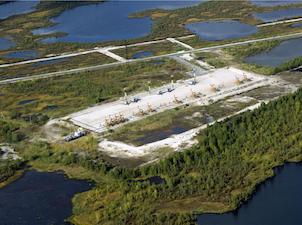This one-of-a-kind project (in terms of both scale and difficulty) envisages creation of digital twins of over 3 thousand wells and 12 production zones. It covers the entire production chain, from the reservoir to the entry point of the central production facility.
Adoption of digital tools allows to accomplish a wide range of operation objectives, such as determining real production potential, planning, monitoring and evaluating hydrocarbon output, as well as developing and implementing optimization measures within the framework of the business process of the optimization of production.
The Company has already put 61 integrated models in commercial use. Over a third of LUKOIL's total hydrocarbon output is produced by the fields featuring integrated models. In 2020, integrated modelling tools and approaches had a cumulative effect of 3 billion roubles on the Company's EBITDA.
"Investing into homeland projects is one of LUKOIL's key priorities. Since 2014, our Russian upstream projects alone received about 2.3 trillion roubles. The Intelligent Field project is a unique digital complex that encompasses all LUKOIL's main production centres. It enables extraction of additional resources and more efficient production management. In the nearest future, we are going to expand the project, introducing integrated models at over 100 key fields in Russia," said Azat Shamsuarov, PJSC LUKOIL First Vice President.
The West Siberian Vatyeganskoye oil field, with its initial recoverable reserves of 338 billion tonnes of oil, is among the 25 largest fields in Russia. Its development began in 1983. The field has complex multilayer geological structure; its area covers 440 square kilometres.


